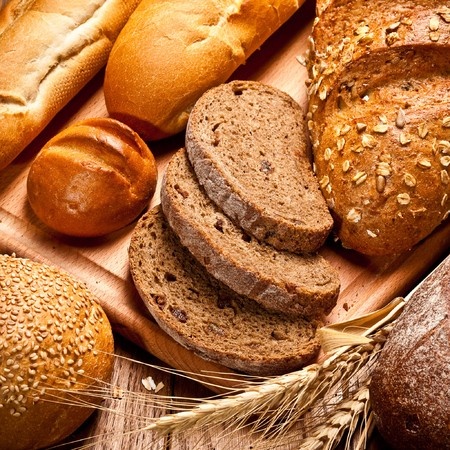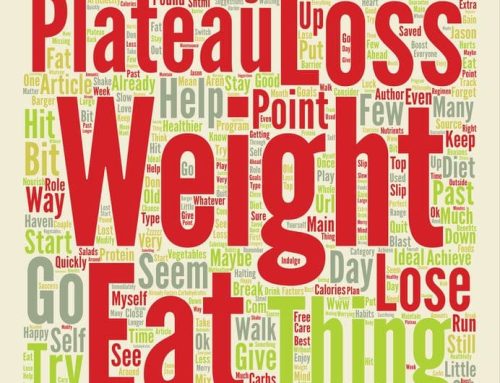Wondering how to lose weight in mid-life. Is weight gain in mid-life inevitable or does your nutrition make a difference? A new study finds that staying away from processed carbohydrates is the key to weight loss in mid-life.
Limiting ‘bad’ carbs key to midlife weight loss
People who consume refined grains, starchy vegetables and sugary drinks put on significantly more weight over time
Limiting “bad” carbs is key to controlling weight gain in midlife, a large study suggests.
The research, by a team in the US, found people who consumed refined grains like white bread, starchy vegetables such as potatoes and sugary drinks put on significantly more weight than those with a diet of mainly “good” carbs like whole grains, fruit and non-starchy vegetables.
The associations were stronger among people who were classed as overweight.
The researchers said the results suggest swapping bad carbs for good carbs may support efforts to control weight.
“The quality and source of carbohydrate is crucial for long-term weight management, especially for persons already with excessive body weight,” Yi Wan, a postdoctoral research fellow in nutrition at Harvard told The National.
“Transitioning low-quality carbohydrate food sources (for example, added sugar, sugar-sweetened beverages, refined grains, and starchy vegetables) to high-quality sources (whole grains, fruits, and non-starchy vegetables) may support efforts to control body weight.”
Examples of bad carbs include desserts, white bread, rice, pasta, crisps and bagels, all of which tend to spike blood sugar.
A link between carbohydrates, weight gain and obesity is not proven and few studies have evaluated the relationship between changes in intake over time and long-term changes in body weight.
Research on How to Lose Weight in Mid-Life
Here are the results of new research on how to lose weight in mid-life:
A team of US researchers set out to examine the associations at four year intervals, over a total follow-up period of 24 years.
- To do this they compared data from 136,432 men and women aged 65 years or younger who enrolled in three studies, two of which started in 1986.
- On joining, participants were free of conditions including diabetes, cancer, cardiovascular disease, respiratory disease, neurodegenerative disorders, gastric problems and chronic kidney disease.
- They completed questionnaires on personal characteristics, medical history, lifestyle and other health related factors at the start of the study, and every two to four years thereafter.
- The results showed that, on average, participants gained 1.5kg every four years, amounting to 8.8kg on average over 24 years.
- Increases in glycemic index and glycemic load – which considers the amount of carbohydrate in a portion of food together with how quickly it raises blood glucose levels – were positively associated with weight gain.
- The results showed a 100g per day increase in starch or added sugar was associated with 1.5kg and 0.9kg greater weight gain over four years, respectively, whereas a 10g per day increase in fiber was associated with 0.8kg less weight gain.
- Increased carbohydrate intake from whole grains resulted in 0.4kg less weight gain for each 100g per day increase, while fruit resulted in 1.6kg less weight gain and non-starchy vegetables such as broccoli, carrots and spinach led to a 3kg less weight gain.
- In contrast, increased intake from refined grains and starchy vegetables led to greater weight gain.
- A rise in refined grains resulted in 0.8kg more weight gain for each 100g per day increase, with starchy vegetables such as peas, corn and potatoes seeing 2.6kg more weight gain.
The associations were stronger among participants with “excessive body weight” than those who were of normal weight. Most of the links were also stronger among women.
The researchers said the study was observational, so cannot establish cause.
They also pointed to several limitations, such as reliance on self-reported estimates of both carbohydrate intakes and the weight outcomes, and potential mistakes in measurements of food.
But the study was large and used repeated dietary assessments and validated questionnaires over a long follow-up period, spanning “the important period of weight gain in midlife”.
They said the findings “highlight the potential importance of carbohydrate quality and source for long term weight management, especially for people with excessive body weight”.
“Limiting added sugar, sugar sweetened beverages, refined grains and starchy vegetables in favor of whole grains, fruit and non-starchy vegetables may support efforts to control weight,” the study said.
Click here to read more about how to lose weight in mid-life.







